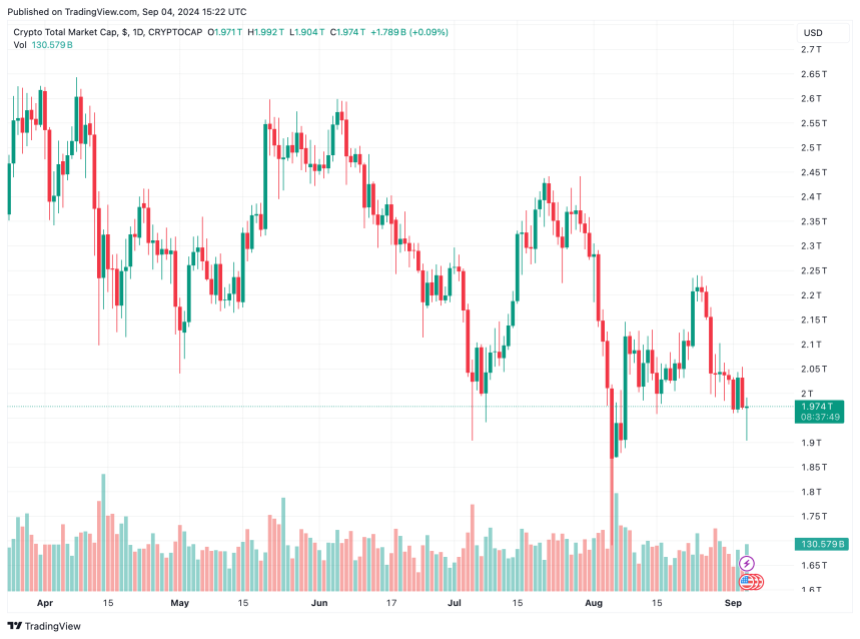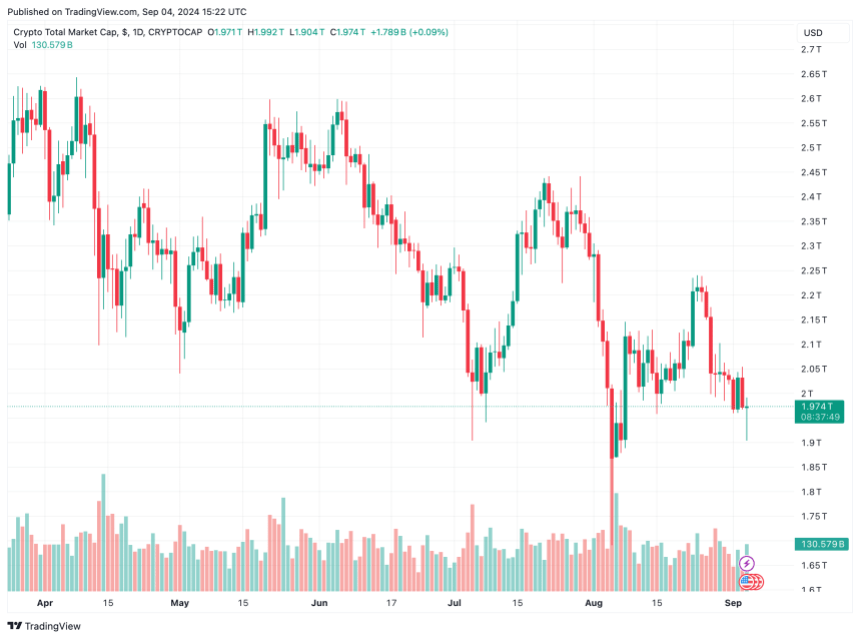Este artículo también está disponible en español.
Leading Swiss bank Zurich Cantonal Bank is the latest financial entity to enter the crypto waters in Europe, as it unveiled Bitcoin (BTC) and Ethereum (ETH) trading services on September 4, 2024.
Swiss Banking Juggernaut To Offer Crypto Services
In its press release published today, the bank said its customers can avail 24/7 cryptocurrency trading and custody services via its existing digital platforms such as ZKB eBanking and ZKB Mobile Banking.
The fourth-largest Swiss bank with total assets under management worth $235 billion, Zurich Cantonal Bank has also joined forces with Crypto Finance AG, a subsidiary of the Deutsche Börse Group. The partnership will enable the bank’s customers to execute digital assets trades, in Bitcoin and Ethereum, the press release notes.
Related Reading
Commenting on the development, Alexandra Scriba, Head of Institutional Clients & Multinationals at Zurich Cantonal Bank said:
Our newly launched offering in the area of cryptocurrencies offers a high level of security and allows the integration of additional currencies and applications. When it comes to cryptocurrencies, the Zurich Cantonal Bank assumes the critical function of the safe custody of private keys. Customers and third-party banks therefore do not need their own wallet and therefore do not have to worry about storing their own private keys. The Zurich Cantonal Bank takes care of both.
The press release notes that Zurich Cantonal Bank’s latest crypto offering isn’t just limited to its customers. The bank offers business-to-business (B2B) solutions that allow other Switzerland-based banks to provide their customers with crypto trading and custody services. Swiss cantonal bank, Thurgauer Kantonalbank is already leveraging this service.
It’s worth noting that this isn’t the bank’s first exposure to digital assets, as in 2021, the institution was involved in issuing the world’s first digital bond on the SIX Digital Exchange.
Europe Continues To Embrace Bitcoin and Ethereum
Europe’s history with cryptocurrencies such as Ethereum and Bitcoin has been rather convoluted. Due to its strict privacy laws and lack of a standard regulatory framework for digital assets, businesses have typically steered clear of entering the emerging industry in Europe.
Related Reading
For instance, Binance, the world’s largest cryptocurrency exchange by reported trading volume, has faced several regulatory hurdles in Europe. In 2023, Binance not only decided to cancel its registration with the UK Financial Conduct Authority (FCA), but also shuttered its operations in the Netherlands.
However, with the increasing acceptance of cryptocurrencies worldwide – propelled by the approval of Bitcoin exchange-traded-funds (ETFs) by the US Securities and Exchange Commission (SEC) – countries and international unions are feeling more comfortable adopting the digital assets economy.
In July 2024, USDC issuer Circle bagged Europe’s first stablecoin license in France, enabling the firm to operate as a compliant entity under the European Union’s crypto regulations. The total crypto market cap stood at $1.975 trillion at press time.

Featured Image from Unsplash.com, Chart from TradingView.com



